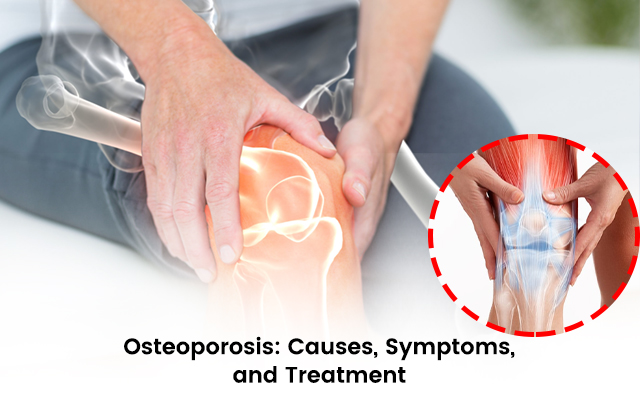Osteoporosis: Causes, Symptoms, and Treatment
Osteoporosis causes your bones to become weak and brittle. This makes them more prone to fractures. These fractures generally occur in your wrist, hip, and spine. Below, the best orthopedic doctor in Newtown has discussed the causes, symptoms, and treatments of osteoporosis.
Before we dive into the causes and treatments of osteoporosis, let us first look at its symptoms.
Symptoms
In general, there are usually no symptoms in the initial stages of bone loss. But, once your bones have become weak due to osteoporosis, you might experience the following signs and symptoms, including:
1. Back pain caused by a fractured vertebrae
2. Stooped posture
3. Bones that break easily
4. Loss of your height over time
Causes
Some factors can increase your risk of developing osteoporosis. Here, the top orthopedic surgeon in Saltlake has discussed them in detail.
Sex: Women are more likely to develop this condition than men.
Family history: If you have a sibling or parent who suffers from osteoporosis, you will be at a greater risk of developing the disease.
Body frame size: Women and men with smaller body frames are at a higher risk as they have lower bone mass to rely on as their age progresses.
Medical conditions: People with medical conditions like Inflammatory Bowel Disease, Liver and Kidney disease, celiac disease, cancer, multiple myeloma, and rheumatoid arthritis.
Lifestyle choices: Regular alcohol consumption and smoking contribute to the development of osteoporosis.
Treatments
The top treatments for osteoporosis are as follows.
Osteoporosis medications are of two types, including:
Antiresorptive drugs: These medications slow down the rate at which your body breaks down your bones. Some of these medications consist of bisphosphonates, estrogens, denosumab, and calcitonin.
Anabolic medications: These drugs are prescribed for enhancing the formation of bones. Some examples are teriparatide and romosozumab.
Hormonal medications for osteoporosis can be of the following types:
Selective estrogen receptor modulators: These drugs recreate estrogen’s bone-preserving effects.
Parathyroid hormones: These medications regulate the phosphate and calcium levels in one’s body and encourage the growth of bones.
Calcitonin: It regulates the level of calcium in your body to keep your bones strong.
The types of medications that your doctor prescribes depend on whether they are trying to prevent the development of the disease or treat it. However, everyone with osteoporosis might not be prescribed the same medications. For instance, menopausal women will usually receive different medications than men.
Apart from medications, your doctor might also recommend some exercises that you need to perform in order to manage the condition. Consult the top orthopedic doctor in Newtown to evaluate your condition and receive appropriate treatment.

